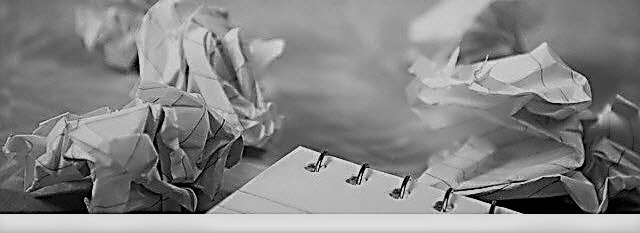From my perspective, the biggest value that Truby brings to the table is to force me to think longer, harder and deeper, about my characters, their background, influences, motivation, and interactions. The last section of Chapter 4 covers values, as in how the character would answer the question “what makes life good?” We answer that question for each of the major characters. You can see the summary of this exercise in Part 10 in column of the character table. This exercise answers that question in more detail.
Chapter 4: Character Part 2
Values
Jack (hero): Peace, inner and outer. From childhood, Jack has trained himself to discard desire, to embrace what is instead of seeking what is not. Counterintuitively, he has developed a high degree of self-confidence by choosing to not indulge self. Content to keep his thoughts to himself, he doesn’t impose himself or his ideas on others. He is more likely to answer a question with a question, not an answer. (Which can make him an annoying companion.) He doesn’t do this to be clever or from a lack of opinions/preferences, but because he has found that the fewer opinions he has about what others should do, the more tranquil his life. His worldview could be summarized as “It’s your nickel.”
Roger (opponent): Survival = financial success. From childhood, Roger has learned that you get what you can take, because nobody is going to give it to you. Counterintuitively, he does this through giving in the form of the fixer. He gains power by helping others get what they want. He is Radar O’Reilly as Shylock, bargaining without conscience or scruple, ultimately demanding his pound of flesh in the end. This worldview was developed as a survival mechanism, and he has used it to make himself rich, because in his world money is the only measure of success.
Zoe (opponent): Respect. The respectable version of Roger, Zoe trades influence for money and power, but as a means to command respect. In her world, money is a given, but it is only valuable insofar as it gains her respect, in fact, she sees it as the only path that will gain respect and has no respect for those without money. However, she knows how to hide her ulterior motives in her climb to success.
Dan (opponent-ally): Stability. The judge sees the letter of the law as the guarantor of a stable community. Fair-minded but inflexible, he sees exceptions to the rule as the nose of the camel, the slippery slope toward societal disintegration, but secretly doubts himself, wondering if he has set the standard so high that he has doomed the larger part of humanity to failure to meet it, and so relies on, or maybe hides behind, the statutes when others might exercise judicial discretion. Far from a hardass, he is good humored and treats all with respect and disagrees firmly but pleasantly.
Bella (ally): Harmony. Unlike the judge, Bella doesn’t second guess her convictions. She wants the best for everyone, and she knows just what they need to do. Her innate good nature, sense of humor, and concern for everyone from the highest to the lowest without regard to station serves as a partially-effective counterbalance to what would otherwise be harsh, overbearing mothering with a capital S. [I’m sure the capital S meant something when I wrote it. No idea what, though.]
Riki: Accomplishment. The weaker twin, Riki never figured out how to exist in this world. (Zen struggle between illusion and reality?) In his teens, he succumbed to the drug culture and died of an overdose, one of Roger’s earliest victims.
Jodi: Domestic tranquility. From childhood, Jodi assumed the role of mother for her twin brother to replace their birth mother. (Mother died? Abandoned them? Incompetent father? Bounced through the foster program?) When Riki dies, she transfers her energy to her bosses as an aggressively competent and controlling executive assistant.
Noel (opponent): Control. Noel followed in the footsteps of her father to become a homicide detective. Her obsession with justice and her keen insight brought her recognition, but not advancement. In midlife, she worries that she has neglected her family in her devotion to the mission.
Four-corner opposition
| Jack | Roger |
| Noel | Zoe |
Detour: Character Diamond
At one time, David Freeman taught a course called “Beyond Structure” which included the concept of the character diamond. Unfortunately, Freeman is too busy being Executive VP of Walt Disney Television / Star TV , the course is not currently available, and there is very little information online about this tool for developing complex and memorable characters.
The best description I could find online is from the website of Brian Eisenberg, marketing wiz, who uses the tool to develop buyer personas. In another blog post, Wizard of Ads partner Tim Miles uses the character diamond to create brand identities.
Definitions
| Defining characteristic | ||
| Vulnerability | Core identity | |
| Counterpoint (opposite) |
North: Defining characteristic of the character. The first thing you notice.
South: Counterpoint. Opposite.
West: Vulnerability.
East: Core identity. Non-negotiable, protect at all cost. Hill you’re willing to die on.
North-South: Makes the character interesting
East-West: Makes people connect
Jack
| Monk, cleric | ||
| Angry doubter | Longs for hope | |
| Seeks justice |
North: Monk, cleric
South: Seeks justice
West: Angry doubting Thomas, he’s a zen fraud
East: Wants to believe there is hope (in the icebox, he fought for meaning through which he remained functional instead of dysfunctional, core-level optimism.)

